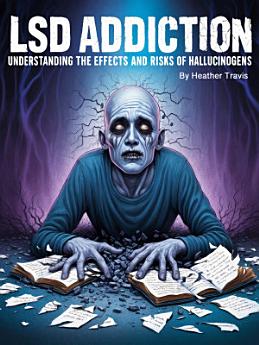LSD Addiction: Understanding the Effects and Risks of Hallucinogens
About this ebook
The traditional understanding of addiction relies heavily on concepts of physical dependence, tolerance, and withdrawal symptoms that are readily observable with substances like alcohol, opioids, or stimulants. LSD appears to violate these conventional addiction paradigms in several important ways. The drug does not produce physical dependence in the classical sense, users do not experience withdrawal symptoms when discontinuing use, and the rapid development of tolerance actually serves as a natural brake on frequent use rather than driving escalating consumption patterns. These characteristics led many early researchers and drug policy experts to conclude that LSD was not addictive in the traditional sense, a belief that persisted for decades and influenced both scientific understanding and legal classification of the substance.
However, the emergence of compelling case studies and clinical observations has revealed that some individuals do develop problematic relationships with LSD that share many characteristics with other forms of addiction. These individuals may use LSD compulsively despite negative consequences, organize their lives around obtaining and using the drug, and experience significant distress when unable to access LSD. This pattern of use suggests that addiction to LSD, while potentially different from classical substance dependencies, represents a real phenomenon that deserves serious scientific and clinical attention.








